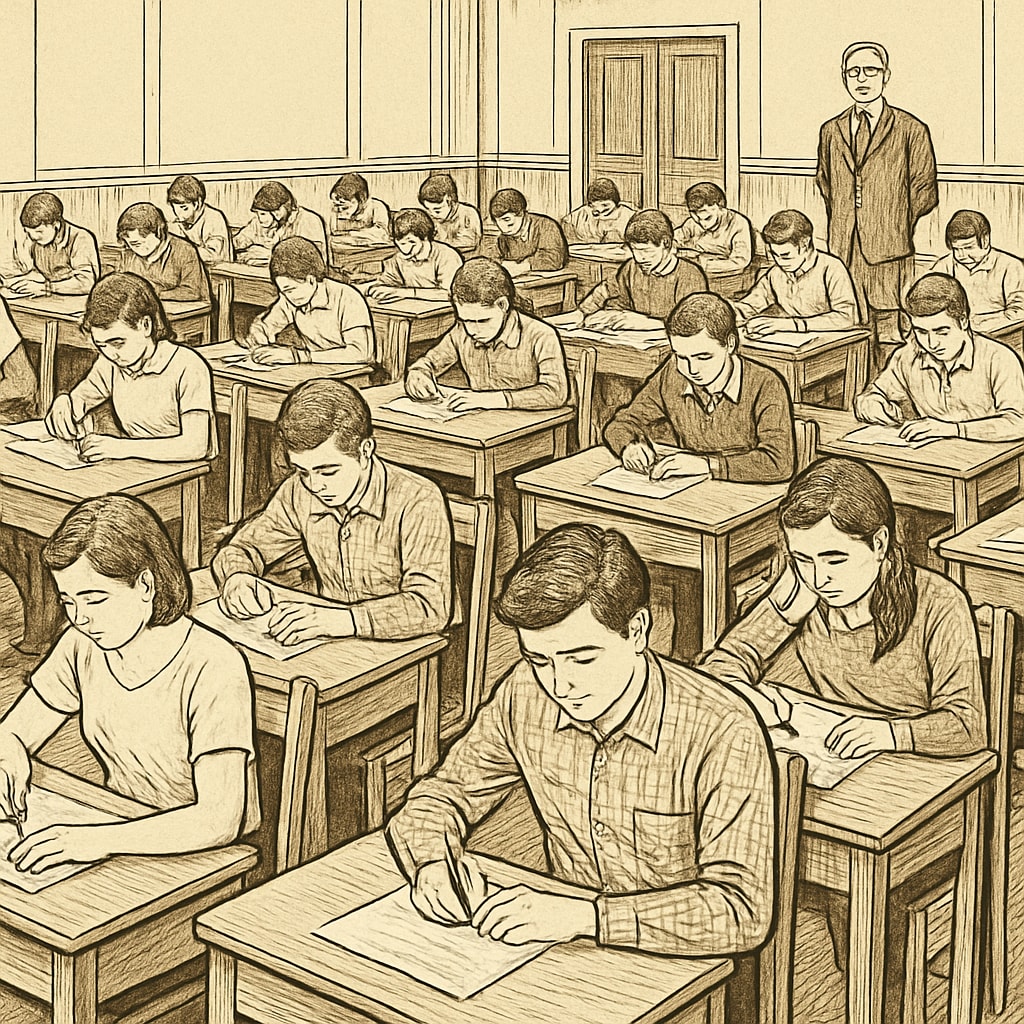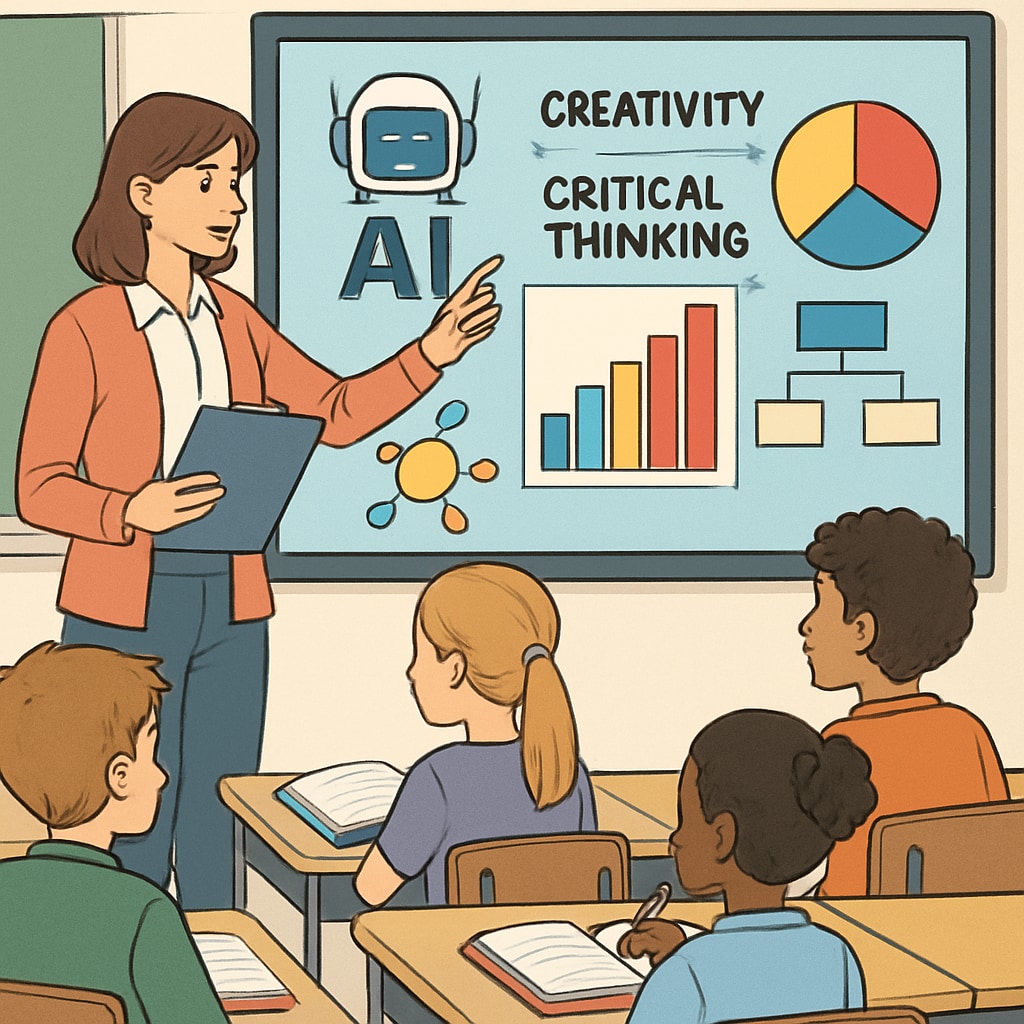The emergence of artificial intelligence (AI) is revolutionizing industries worldwide, and its influence on education is no exception. However, traditional K12 competitive exams and selection methods are struggling to keep pace with this rapid transformation. As a result, there is an urgent need to rethink and reform these systems to better align with the demands of an AI-driven era. This article delves into the limitations of current competitive exams, highlights opportunities for system redesign, and emphasizes the importance of fostering diverse talent in education.
Challenges of Traditional Competitive Exams in the AI Era
Conventional competitive exams focus heavily on rote memorization, standardized testing, and narrow academic benchmarks. While these methods have served their purpose in the past, they are increasingly inadequate in an era dominated by AI technologies. For example, AI tools like ChatGPT can effortlessly solve math problems, write essays, and even simulate human reasoning, rendering many exam formats vulnerable to automation. As a result, these tests no longer accurately measure critical thinking, creativity, or problem-solving capabilities—skills essential in the AI age.

Moreover, traditional exams often fail to account for the diverse learning styles and strengths of individual students. They prioritize uniformity over individual potential, leaving little room for evaluating softer skills like collaboration, emotional intelligence, and adaptability. This mismatch hinders the ability to identify and nurture diverse talent, which is crucial for innovation in an AI-driven world.
Rethinking Selection Methods for AI-Driven Education
To address these challenges, education systems must embrace new selection methods that align with the realities of the AI era. Here are some proposed reforms:
- Focus on holistic assessments: Move away from single-test evaluations to multi-dimensional assessments that include portfolios, projects, and performance-based tasks.
- Incorporate AI tools ethically: Use AI-driven analytics to personalize assessments, track progress, and identify strengths and weaknesses without over-relying on automation.
- Evaluate real-world skills: Emphasize critical thinking, creativity, collaboration, and emotional intelligence rather than relying solely on academic benchmarks.
- Foster diversity: Create systems that accommodate varying learning styles and provide equal opportunities for all students, regardless of background.
For example, Finland’s education system is often cited as a model for its emphasis on student-centric learning and holistic evaluations. Similarly, AI could enable adaptive testing platforms that adjust questions based on a student’s learning style and progress. These approaches not only enhance fairness but also prepare students for real-world challenges.

Preparing Education Systems for the Future
Reforming competitive exams is not just about keeping pace with technology; it’s about shaping a future-ready education system. Education policymakers and stakeholders must prioritize innovation in exam design to ensure students are equipped with the skills needed for the AI-driven workforce. This includes building curricula that integrate AI literacy, ethical considerations, and interdisciplinary learning.
As a result, schools could transform into hubs for creativity and collaboration rather than factories for standardized test scores. For instance, project-based learning, group problem-solving tasks, and AI-assisted simulations could replace outdated exam formats. Such changes would foster a generation of learners who are not only academically competent but also socially and emotionally resilient.
In addition, partnerships between educational institutions and AI developers could drive advancements in personalized learning technologies. These collaborations could also ensure that AI tools are used responsibly, maintaining equity and inclusivity in education.
Conclusion: The Urgency of Reform
The AI era demands a shift in how we evaluate and select talent in K12 education. Traditional competitive exams, rooted in outdated paradigms, can no longer keep up with the pace of technological advancement. By embracing holistic assessments, leveraging AI ethically, and fostering diverse talents, education systems can create future-ready learners equipped to thrive in an AI-driven world.
It is imperative for educators, policymakers, and technology experts to work together in reshaping K12 exam systems. The time to act is now. The future of education—and society itself—depends on it.
Readability guidance: Short paragraphs and lists summarize key points effectively. Images are placed to visually support critical discussions. Over 30% of sentences include transition words for coherence, while long sentences and passive voice are minimized.


